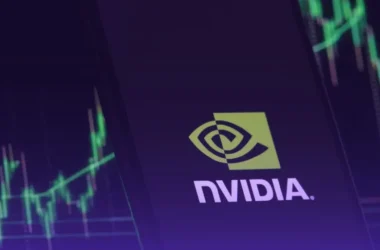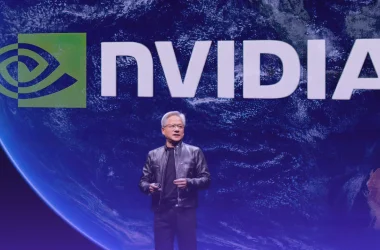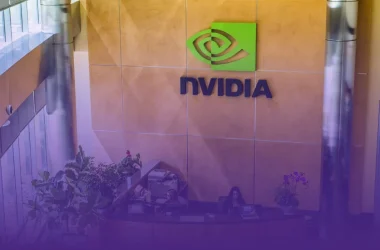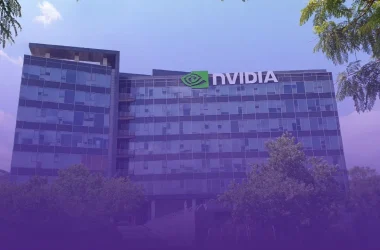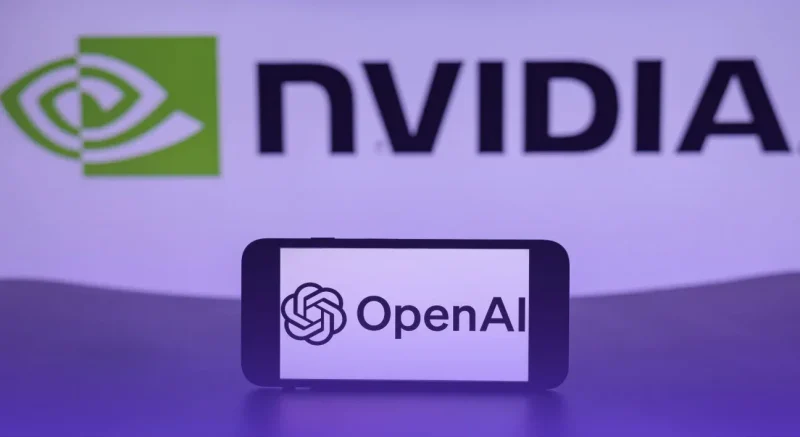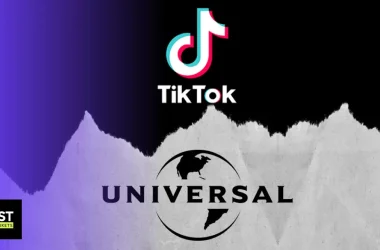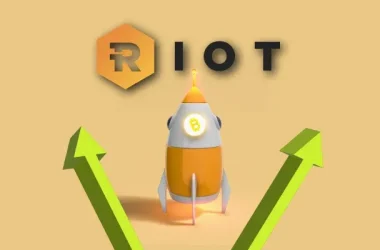According to reports that came out earlier this month, tech giant Microsoft (NASDAQ: MSFT) is currently working on major plans to build a groundbreaking $100 billion supercomputer called Stargate. This supercomputer will be used to power OpenAI’s upcoming generation of artificial intelligence systems. This could be great news for NVDA stock, here’s why.
Stargate
Microsoft is one of the strongest players in the artificial intelligence market, mainly because they have a long partnership with ChatGPT maker OpenAI. The two companies are planning a $100 billion data center project for a supercomputer, and Nvidia (NASDAQ: NVDA) is a name that came up when this was announced.
Large data center projects and supercomputers require really high quality AI chips and GPUs, and based on the fact that Nvidia is the market leader when it comes to these two, it seems like it’s a no brainer that Nvidia will benefit the most from a project like this, as it’ll probably deliver chips and GPUs to Microsoft and OpenAI for this project.
How Nvidia Benefits
Many argue that Microsoft has its own AI accelerator, the Maia 100 AI chip, which it announced last year. But, Nvidia’s chips are more in demand and highly sought after because of their great quality. Even Elon Musk said that that Nvidia GPUs are “considerably harder to get than drugs,” while OpenAI founding member, Andrej Karpathy, said “Who’s getting how many H100s and when is top gossip of the valley right now,” last year.
Microsoft itself is one of the biggest customers for Nvidia’s H100 AI chip, as it was reported that the company spent $9 billion on the Nvidia chip last year. Meaning, even though Microsoft is trying to reduce its dependence on Nvidia, it likely won’t completely abandon Nvidia any time soon, and will keep buying Nvidia chips as it develops its own. There’s a strong possibility that Microsoft will need the help of Nvidia chips to build this project. Think of it this way; if they’re spending this massive amount of money, they’re going to spend it on the top player, and that’s Nvidia.
Of course, Microsoft could be hiding something or a new technology from its own semiconductor solutions unit, but to compete with Nvidia, this new technology has to be completely mind-blowing. Not only that, but Nvidia is always one step ahead of competitors because it releases new products on a yearly basis, and its newest products, including the Blackwell B200 GPU and GB200 “superchip,” will be the perfect fit for a project of this scale because they can deliver computations 30 times faster than its predecessors, while also significantly reducing total cost of ownership and energy consumption by 25 times over an H100.
Amazon and Nvidia
Another reason why we might see Microsoft and OpenAI collaborating with Nvidia on this project is because this isn’t the first time we’ve seen huge cloud service providers announcing huge supercomputers built with Nvidia’s help. During Amazon’s AWS re:Invent event last year, AWS (NASDAQ: AMZN) announced that they were going to build one of the largest supercomputers in the world, Project Ceiba, which it said would host around 16,000 Nvidia GH200 superchips to process AI workloads at scale.
Since Microsoft’s project is a $100 billion data center project that’s expected to be completed in over five distinct phases, with “Stargate” positioned as the pinnacle achievement in the fifth phase, it’ll likely also need a large amount of GPUs, maybe even millions of them. Therefore, if it decides to purchase the majority of the chips from Nvidia, Nvidia will see very high profits, as CEO Jensen Huang told CNBC that Nvidia’s upcoming Blackwell GPUs will cost between $30,000 and $40,000 per unit. Some say that Microsoft and OpenAI could end up going to an Nvidia competitor like AMD (NASDAQ: AMD) for this, but connecting a large amount of GPUs, which is something that they’d definitely want to do, is something that only Nvidia can do at a very large scale.
Can Big Tech Stop Relying on Nvidia?
It seems like the two companies are only reducing reliance on Nvidia when it comes to Nvidia’s networking solutions, rather than AI chips, as the reports state that OpenAI wants to avoid using Nvidia’s InfiniBand cables in Stargate, even though Microsoft is currently using them in other projects. Instead, OpenAI wants to use Ethernet cables. But, Jensen Huang said in the GTC Financial Q&A session that Ethernet isn’t great for AI right now, so it seems a bit counterintuitive that OpenAI wants to use it.
The truth is, Jensen Huang also said that there’s something being developed right now called Ultra Ethernet, which will be great for AI and he expects it to be available in three to four years. Since the Microsoft and OpenAI supercomputer is meant to be built over the next few years, then it makes sense for them to reduce reliance on Nvidia’s networking solutions and wait for Ultra Ethernet to really become a thing.
But, this doesn’t mean that Nvidia will lose its edge in networking solutions when Ultra Ethernet happens. Jensen Huang made it clear that he thinks Ultra Ethernet will be the next best thing for AI technologies, so Nvidia could be working on its own Ethernet solution, which it’ll be able to sell with its products three to four years from now.
NVDA Stock Forecast
Executives hope to get the Stargate project up and running by 2028, with some phases of it expected to launch as soon as 2026. But aside from this project and whether Nvidia will have a part in it or not, we know for certain that AI technologies will continue evolving and that they’re now being implemented in every industry out there, not just tech, and this will greatly benefit Nvidia.
Nvidia talked about how it’s entering the healthcare industry with AI, as well as the automotive industry, the energy industry, and robotics, so there’s still a massive potential for the company, and this could be the case for buying NVDA stock now. It’s not just retail investors seeing the value in Nvidia now, but also institutional investors.
NVDA stock is currently trading at around $874, which is a decrease of 8% from the $950 it reached in March. It’s likely that many investors saw Nvidia as overvalued when it reached that price, and sold shares to take profit, leading to a decrease in NVDA stock price. Jensen Huang reacted to this decrease, saying that while the stock dropping made him feel embarrassed, he’ll still prioritize the company’s core values and will focus on doing the same job he was doing when the stock was doing great. This is a great mindset to have, and this was recognized by none other than Tesla (NASDAQ: TSLA) CEO Elon Musk, who replied to Jensen’s words saying: “I know this feeling.”
Nvidia’s fundamentals remain great and unchanged even if the stock price takes a hit, which is why this current dip could be a great buying opportunity for investors. In fact, Nvidia has been gaining attention from institutional investors. Everett Harris & Co. boosted its Nvidia holdings by 5.3% in the fourth quarter, and Lee Johnson Capital Management purchased a new position in Nvidia valued at approximately $234,000, also in the fourth quarter.
Ballast Inc. also acquired a new stake valued at approximately $298,000 in the company in the fourth quarter and Northcape Capital boosted its position in Nvidia by 266.5%. The truth is, roughly 65.5% of Nvidia’s shares are owned by institutional investors, meaning that the big money has moved into the chipmaker more than any other Magnificent Seven stock. This could mean that Nvidia has a very bright future ahead, as multiple institutional firms are still bullish on the company and buying the dip. We have to agree, as everyone agrees on AI being the future, so of course, the AI chip market leader will benefit greatly from this in the long-term.
Disclaimer
Please visit and read our disclaimer here.

